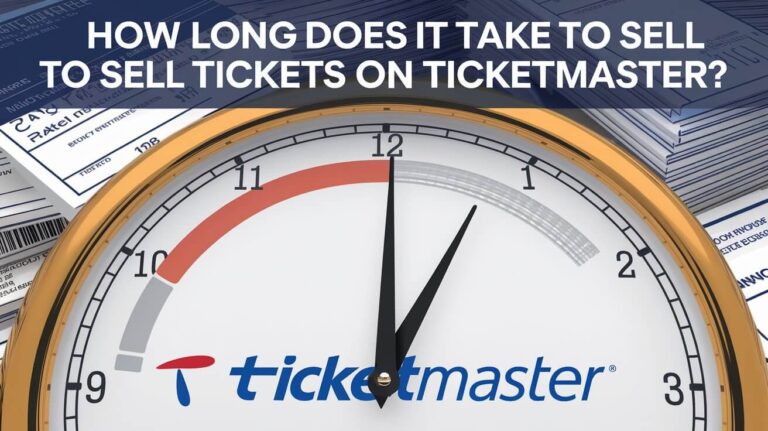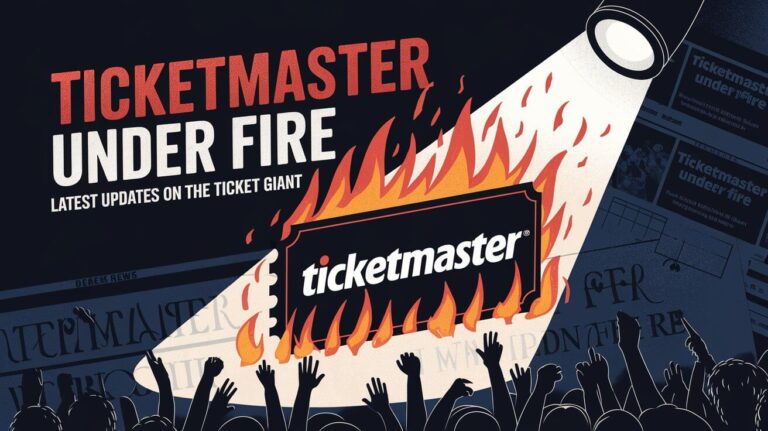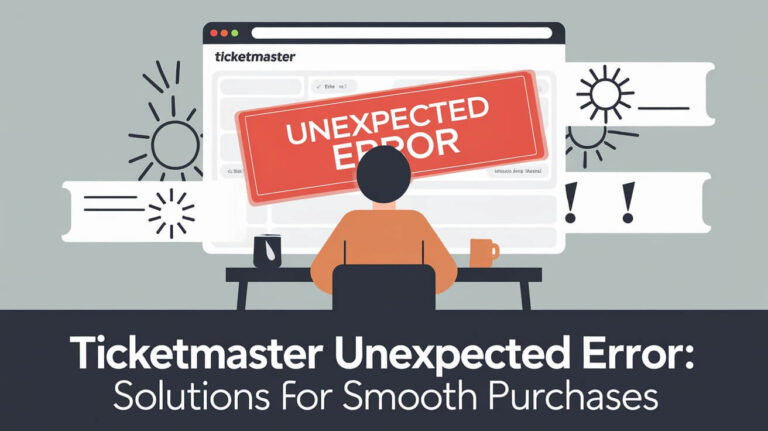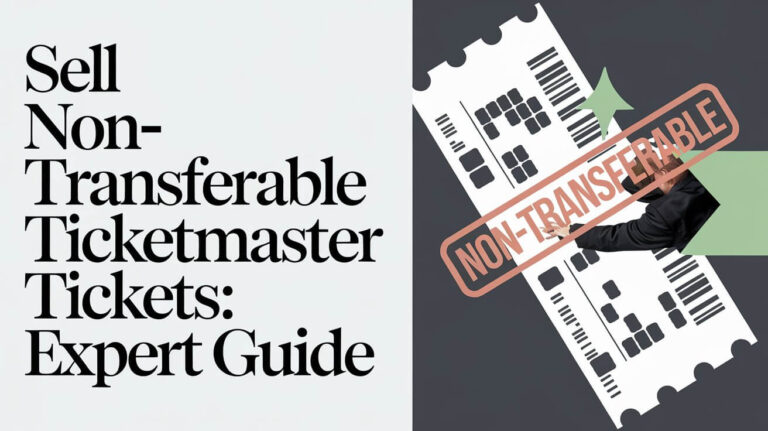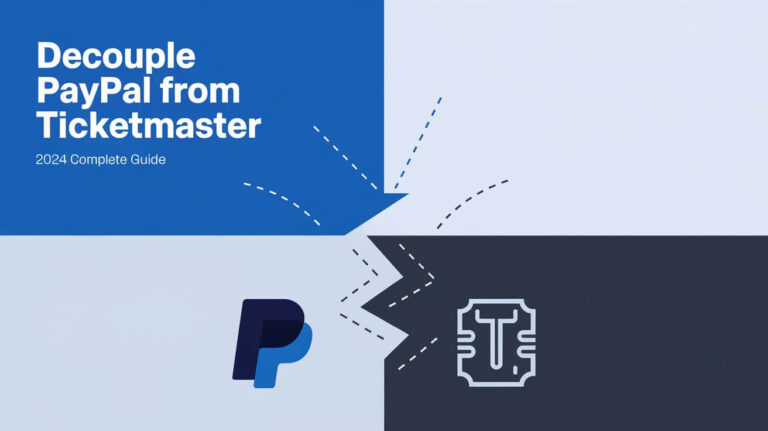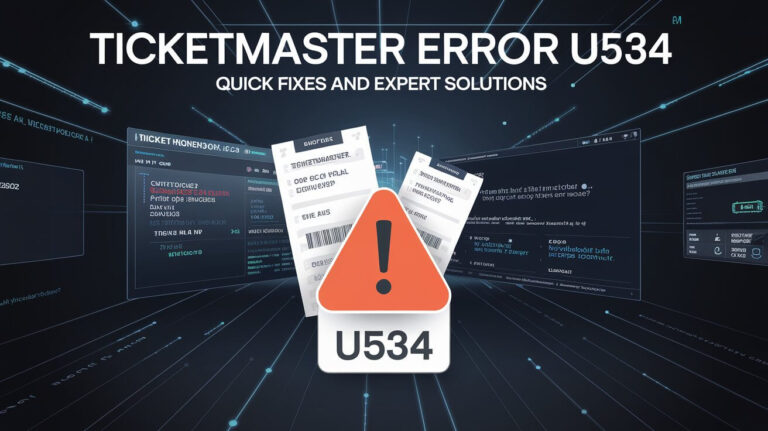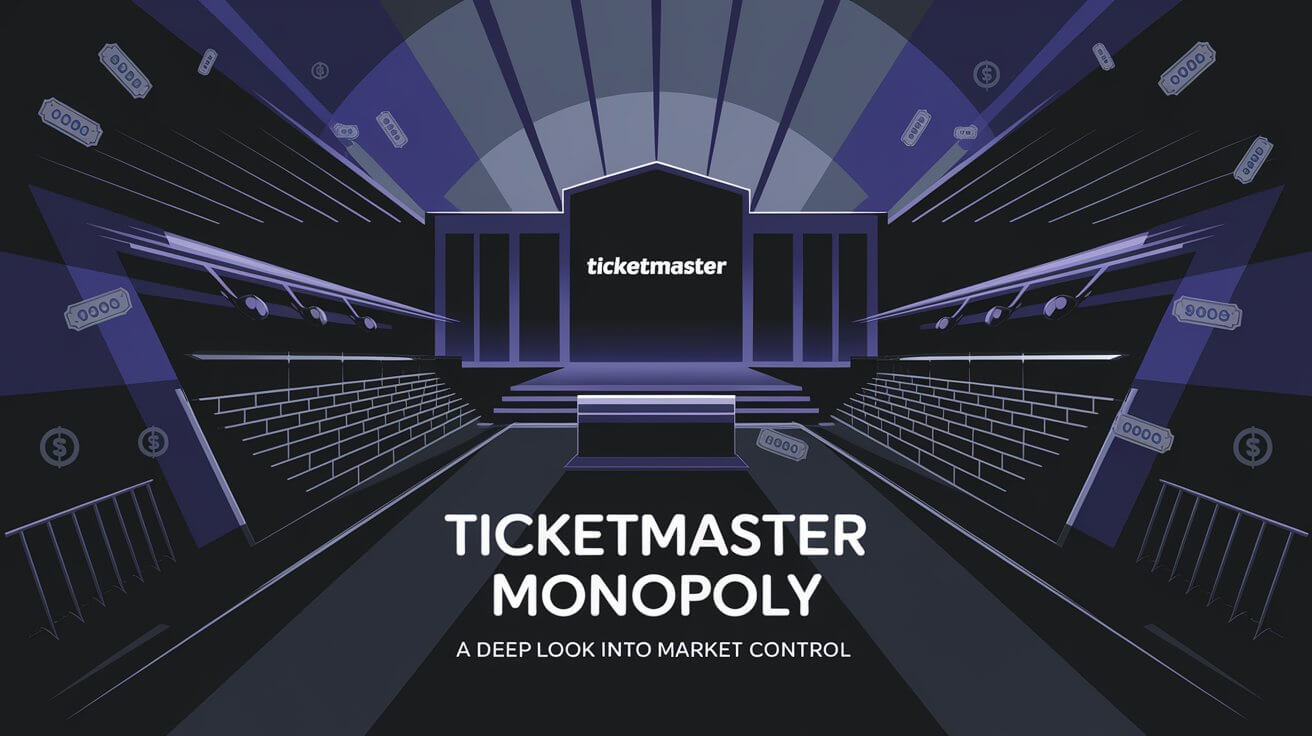
Ticketmaster dominates the live entertainment industry with iron-clad control over 70% of the ticketing market. This massive grip on live events affects everyone from music fans paying sky-high fees to artists struggling to book shows on their own terms. The company’s monopoly runs so deep that the U.S. Department of Justice filed a major lawsuit in 2024 to break up its parent company, Live Nation Entertainment.
Ticketmaster’s Dominant Market Position
The numbers tell a striking story of Ticketmaster’s market power. In 2023 alone, the company sold 620 million tickets worldwide. It controls over 80% of the live concert market specifically. The company’s parent, Live Nation Entertainment, owns 56 of the world’s top 100 amphitheaters.
This market dominance translates into huge profits. Live Nation Entertainment generates over $22 billion in global annual revenue. The company’s resale market alone brought in $4.5 billion in 2022, showing its grip on both primary and secondary ticket sales.
The Birth of Ticketmaster’s Market Power
The roots of Ticketmaster’s monopoly stretch back to 1976. Computer programmer Peter Gadwa and box office expert Albert Leffler started the company as a software business. They licensed ticketing systems to retail outlets and universities for paper ticket sales.
The company’s path to dominance accelerated in 1982 under CEO Fred Rosen. Through aggressive marketing and venue incentives, Ticketmaster overtook its main rival Ticketron by the mid-1980s. The company rapidly expanded deals across more than 90 U.S. cities.
Major tech investment came in 1993 when Microsoft co-founder Paul Allen bought 80% of Ticketmaster for over $325 million. Allen transformed it into a technology company focused on online ticketing. By then, Ticketmaster already posted $1 billion in annual sales from 52 million tickets.
The most crucial move came in 2010. Ticketmaster merged with Live Nation, America’s largest event promoter. This merger created today’s Live Nation Entertainment – a ticketing and promotion powerhouse that controls multiple parts of the live entertainment chain.
How Ticketmaster Maintains Its Monopoly
Ticketmaster uses several key tactics to keep its monopoly power:
Exclusive Venue Contracts
The company locks venues into long-term exclusive contracts. These deals prevent venues from using any other ticketing services. Venues can’t even test newer or more cost-effective ticketing technology because of these restrictive agreements.
Control Over Artist Promotions
Live Nation-Ticketmaster restricts artists’ access to key venues. Musicians often must use Ticketmaster’s promotion services to perform at Live Nation venues. This ties artists to the company’s ecosystem.
Strategic Partnerships
The company maintains powerful relationships with industry players. For example, its partnership with Oak View Group helps block competition. When Oak View Group tried competing for artist talent, Live Nation quickly shut it down through pressure tactics.
Eliminating Competition
Live Nation-Ticketmaster actively buys out smaller regional promoters it sees as threats. The company has acquired numerous competitors to prevent any real challenge to its dominance.
Impact on the Concert Industry
The monopoly creates several major problems in live entertainment:
Higher Prices for Fans
Fans pay more in fees because Ticketmaster faces little competition. The company can set high service charges without fear of losing customers to competitors.
Limited Venue Options
Venues have few real choices for ticketing services. Most must work with Ticketmaster or risk losing access to popular artists and tours.
Restricted Artist Independence
Artists struggle to tour independently. Even major acts like Pearl Jam faced roadblocks when trying to avoid Ticketmaster’s system.
Legal Challenges to Ticketmaster’s Dominance
The monopoly faces its biggest threat yet from recent legal action:
The 2024 DOJ Lawsuit
In May 2024, the Department of Justice sued Live Nation-Ticketmaster for monopolizing the live concert industry. The lawsuit demands breaking up the company to restore competition.
State Support
Thirty state attorneys general joined the DOJ’s lawsuit. This broad support shows widespread concern about Ticketmaster’s market power.
Previous Cases
This isn’t Ticketmaster’s first legal battle. In 1994, Pearl Jam sued on antitrust grounds. Though that case didn’t succeed, it highlighted longstanding monopoly concerns.
Dynamic Pricing and Fee Structure
Ticketmaster’s monopoly power shows clearly in its pricing practices:
Complex Fee System
The company charges multiple service fees on each ticket. These fees often add significant costs beyond the ticket’s face value.
Price Control
Without real competition, Ticketmaster sets fees as it chooses. Even when artists like The Cure tried limiting ticket prices, Ticketmaster’s fees drove up final costs.
Secondary Market Dominance
Ticketmaster profits from resale markets too. Its SafeTix system with rotating barcodes helps control the secondary ticket market.
Consumer and Industry Response
The monopoly faces growing pushback:
Fan Resistance
The Taylor Swift ticket sales crash in 2022 sparked massive consumer outrage. Fans sued Ticketmaster for fraud and antitrust violations.
Artist Challenges
Some artists actively fight the system. The Cure demanded fee refunds for fans. Pearl Jam’s 1994 boycott highlighted artist frustration.
Alternative Options
Smaller companies like Eventbrite, AXS, and StubHub offer alternatives. But they struggle to compete with Ticketmaster’s market power.
Breaking the Monopoly: Potential Solutions
Several approaches could help restore competition:
Structural Changes
The DOJ lawsuit seeks to break up Live Nation-Ticketmaster. This could separate ticketing from promotion services.
Venue Independence
Ending exclusive contracts would let venues use multiple ticketing services.
Technology Innovation
New ticketing platforms could emerge if barriers to entry decrease.
Competition in live entertainment benefits everyone. Fans pay less for tickets. Artists gain more touring options. Venues get better service. Breaking Ticketmaster’s monopoly stands as a crucial step toward a healthier concert industry.
Multiple government agencies now challenge Ticketmaster’s control over live entertainment. The company’s monopoly faces its strongest test yet. Live music’s future depends on restoring real competition to ticket sales and concert promotion.

